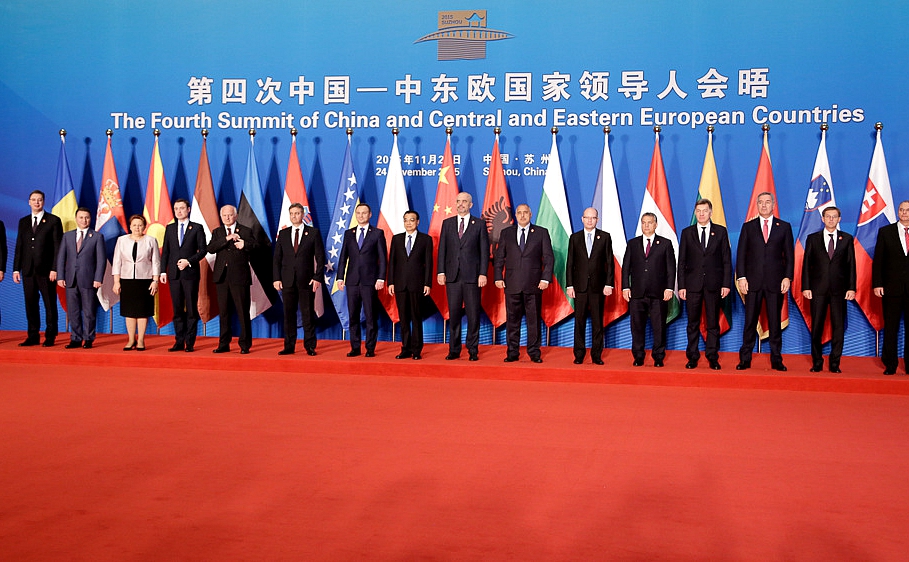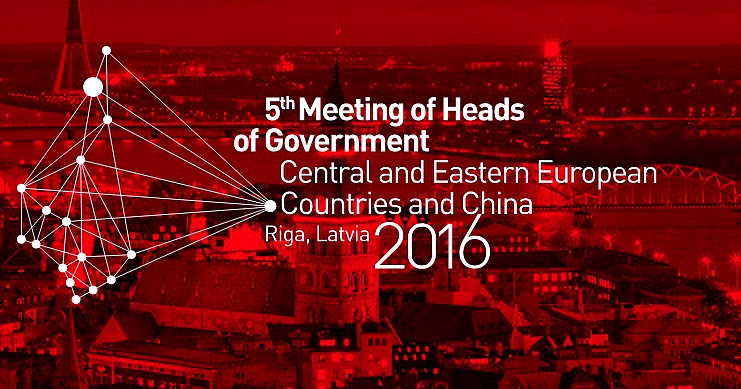The "1" is geopolitical behemoth China. The "16" are an eclectic but fairly complete list of Eastern European countries, Russia excluded. So what's the big deal?
The precise nature of the deal - or preferably deals - remains to be seen, but the hope is that China, which devised the format, will use the summit meeting to announce its latest round of investments in the region. Obviously as host nation, Latvia wants a piece of the action, but all the other countries will be touting for Chinese business, too.
According to the official website:
"The 5th Meeting of Heads of Government of Central and Eastern European Countries (CEEC) and China will provide an opportunity to review the progress and results of the CEEC-China (16+1) Cooperation since China’s announcement of the comprehensive initiative on cooperation with the 16 Central and Eastern European countries in 2012 as well as the implementation of the Medium-Term Agenda for Cooperation between CEEC and China and the Suzhou Guidelines."
The event itself has two main components: the meeting of political leaders and a parallel business forum. In all 750 people are expected to attend (not including dozens more press representatives) including the 17 national leaders, according to Latvia's Economics Ministry.
The star turn will be Chinese Premier Li Keqiang, an extremely influential economic figure as well as being the head of the Chinese government. His appearance in Latvia will be part of a trip that also takes in Kyrgyzstan, Kazakhstan and Russia.

Riga will be the fifth such meeting. A look back at the previous four events gives an idea of what to expect: a carefully stage-managed set of messages, avoidance of any controversial topics and dozens of references to both the wisdom of Confucius and Silk Roads past, present and future as ideal cultural and economic cooperation models.
The 2015 summit took place in China itself and saw the 17 leaders taking a bullet train ride, a fact alluded to in Li Keqiang's speech:
"China’s ancient thinker Confucius once said that “three years of hard work will surely lead to accomplishments”. Over the past three years, the 16+1 cooperation, just like a fast-speed train, has set out on its journey and gained speed all the way from Warsaw to Bucharest, and from Belgrade to Suzhou. Such a fast train has traveled to where it is today because every carriage has served to provide incessant driving force to ensure that our cooperation is steady and produces lasting results."

The fourth summit took place in Belgrade, Serbia in 2014. China has made considerable investments in the country, and both countries acknowledged their cooperation in wholly enthusiastic terms, as in this extraordinary release about the opening of a bridge: "Li Keqiang and Prime Minister of Serbia Jointly Attend Completion Ceremony of Bridge Across Danube River in Belgrade, Stressing to Build Friendship Bridge Linking Hearts of Chinese and Serbian Peoples and Cooperation Bridge Bringing Mutual Benefits and Win-win Results for China and Europe".
Bucharest, Romania played host in 2013. Having faced some questions regarding the worth of the event, Romanian Prime Minister Victor Ponta came out with a typically bullish response, saying it was "an undeniable success for even the most carping of our opponents" that had "put Romania back on the world map." Ponta is currently on trial for money laundering, tax evasion and forgery.
In 2012, the venue for the inaugural 16+1 meeting was Warsaw, Poland. The meeting was notable for the announcement by China of 12 measures to promote cooperation between the countries involved. That list included a commitment by China "to encourage Chinese enterprises to cooperate with relevant countries to establish one economic and technological zone in each country in the next five years."
With no such zone yet in existence in Latvia, that might well be the sort of announcement the Riga meeting could produce, while another thing to look out for will be anything that links China to the construction of the Rail Baltica project. A bullet train from Tallinn to Warsaw would be quite something.
Another thing to look out for would be any annoucement by Latvian national airline airBaltic concerning improved links to China. With new Bombardier CS300 planes due to be delivered soon, the airline will in theory have an extended range that would make China a feasible destination for flights.





























